News
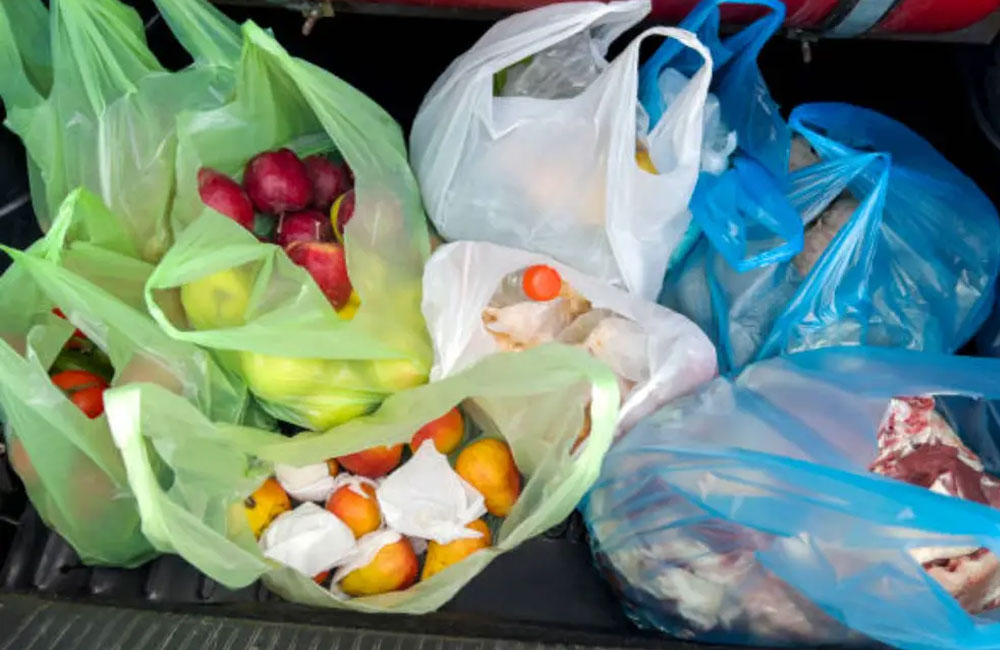
Free Plastic Bags to Be Banned from November 1: Gazette Notice
From November 1, 2025, will no longer receive plastic shopping bags free of charge, as the government plans to introduce a regulation requiring a fee for such bags. This was informed to the Supreme Court today (01) by the Minister of Environment and other responsible authorities.
The announcement came during the hearing of a fundamental rights petition filed by the Centre for Environmental Justice, which requested a court order to introduce measures to reduce the environmental damage caused by polythene use.
The case was heard before a three-judge bench of the Supreme Court comprising Chief Justice Priyasath Dep, Justice Kumuduni Wickramasinghe, and Justice Sampath Abeykoon.
The Centre for Environmental Justice had earlier pointed out that although the Minister of Environment agreed on March 28, 2024, to impose a levy on plastic bags issued by supermarkets and other retail outlets, no steps had been taken to implement it.
Appearing for the petitioners, Attorney-at-Law Dr. Ravindranath Dabare argued that the government’s failure to act on its earlier commitment made the petition necessary.
Deputy Solicitor General Dr. Avanti Perera, representing the respondents, informed the court that a gazette notification would be issued to enforce a fee on plastic shopping bags from November 1.
Following this undertaking, the Centre for Environmental Justice agreed, and the case was accordingly concluded.
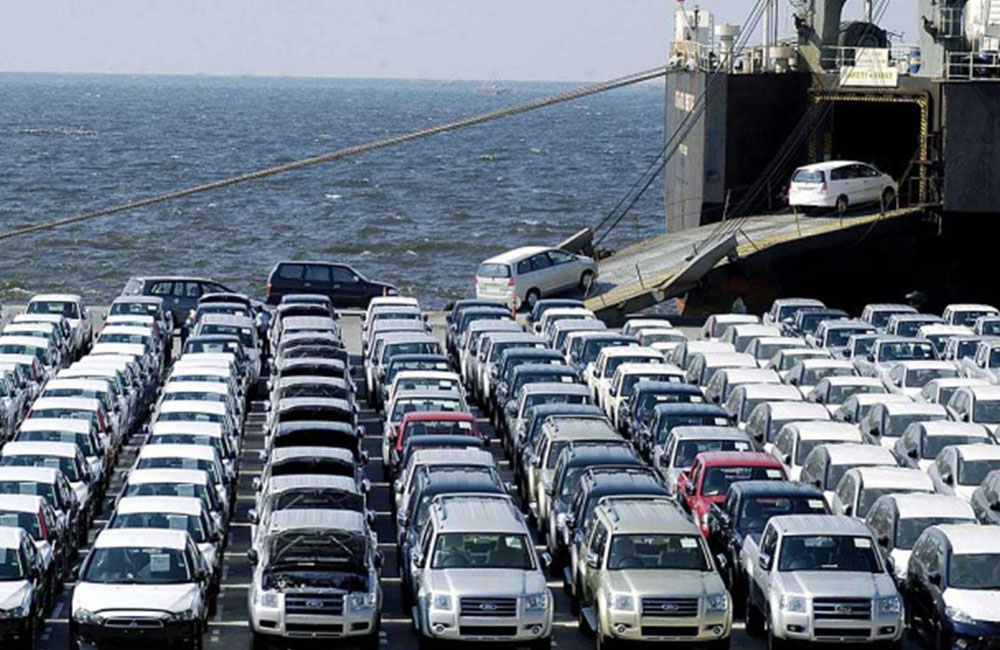
Vehicle Import Expenditure Exceeds USD 250 Million in August 2025
The Central Bank of Sri Lanka reports that with the lifting of restrictions on vehicle imports, the country has spent a total of USD 1,007.5 million on vehicle imports during the eight-month period from January to August 2025.
This was disclosed in the Central Bank’s External Sector Performance Report for August 2025.
According to the report, the highest monthly expenditure on vehicle imports so far this year was recorded in August 2025, amounting to USD 255.7 million.
The monthly expenditure on vehicle imports for the period January to August 2025 is as follows (in USD million):
- January – 29.1
- February – 22.3
- March – 54.0
- April – 145.6
- May – 125.2
- June – 169.6
- July – 206.0
- August – 255.7

Colombo Marathon Returns After 7 Years on October 5
The Colombo Marathon, which had been on hold for seven years due to unavoidable reasons, will take place again on October 5, starting in front of the Bandaranaike Memorial International Conference Hall (BMICH).
The race will begin at 6:00 a.m. near the BMICH traffic lights and conclude at the Negombo Beach Park.
Runners will start from BMICH, proceed along Bauddhaloka Mawatha, turn at the Borella Cemetery roundabout, and continue through Dematagoda, Peliyagoda, and Wattala. From there, they will pass through Hekitta, Hamilton Canal, Pamunugama, Thalahena, Pitipana, and Duwa, before reaching Negombo Beach Park for the finish.
The 19th Colombo Marathon is organized by Lanka Sports Reisen (LSR) with the support of the Ministry of Sports and the Ministry of Tourism, under the full supervision of the Sri Lanka Athletics Association.
First launched in 1998 by LSR as an international marathon, the event became widely known as the Colombo Marathon. It was held continuously until 2018, but had to be canceled in 2019 due to the Easter Sunday attacks and again in 2020 because of the COVID-19 pandemic.
With Sri Lanka’s tourism sector now recovering, LSR has decided to relaunch the Colombo Marathon along with other international sporting events.
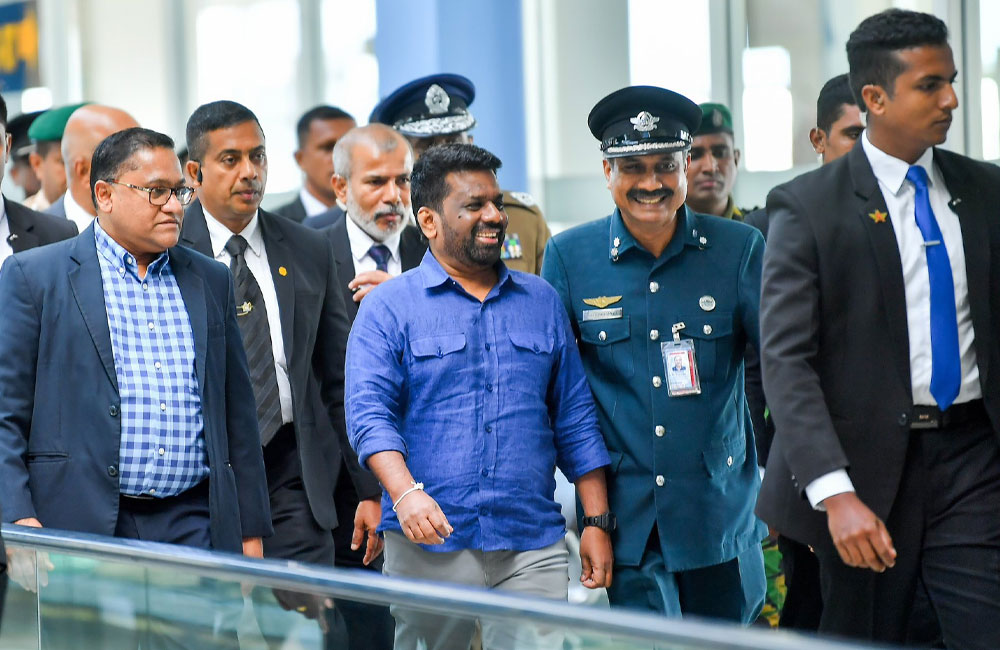
President Returns to Sri Lanka Concluding Japan Visit
President Anura Kumara Dissanayake returned to the country this morning (01) following his official visit to Japan.
The President departed Sri Lanka on September 22 to attend the 80th Session of the United Nations General Assembly. Thereafter, on the invitation of the Government of Japan, he arrived at Kansai International Airport in Osaka on the morning of September 27.
Joining the President on this visit were Minister of Foreign Affairs, Foreign Employment and Tourism, Wijitha Herath, together with senior officials of the Ministry of Foreign Affairs.

Key Breakthrough in Wasim Thajudeen Murder Probe; Conflicting Claims Emerge with Crucial Evidence
Official sources confirm that the Criminal Investigation Department (CID) has made a decisive breakthrough in the investigation into the murder of rugby player Wasim Thajudeen, which took place 13 years ago.
According to the findings, Thajudeen, who was murdered in Colombo, had in fact been killed by the same individual who was shot dead about eight months ago. This revelation was made by the police through ongoing inquiries.
A key eyewitness has now formally identified a previously unknown individual seen in CCTV footage on the night of the incident. Investigators consider this as one of the most concrete pieces of evidence uncovered so far.
These new developments emerged following the arrest and questioning of an organized criminal known as "Bako Saman" in Indonesia. Based on his information, investigators obtained a statement from the wife of another underworld figure, Aruna Shantha (alias "Kajja"), who is now deceased.
In her official statement to the CID, she confirmed that the person seen in the vehicle following Thajudeen’s car in 2012 was her late husband, Aruna Shantha (“Kajja”). She stated that she recognized him based on his physical features and mannerisms.
Meanwhile, Kajja’s son has claimed, “My father’s murder was connected to my own mother and her illicit partner.”

Meanwhile, doubts have arisen regarding the statement given by the wife of Aruna Shantha, also known as “Kajja.”
Kajja’s son, Induwara Vidanagamage, has alleged that his father’s murder — as well as the killings of his brother and sister — are connected to his mother, Amisha Bethmee, and her illicit partner, Sampath Ramanayake.
He made this claim through a post published on his official Facebook page, which stated the following:
Correction of the false report linking my father, Anura Priyantha alias “Middeniya Kajja,” to the murder of Wasim Thajudeen
The Police recently announced that my father, who was killed on 19 February this year, was also connected to the murder of rugby player Wasim Thajudeen, which occurred on 17 May 2012. According to their statement, my late father was identified by his former wife as the individual seen in CCTV footage getting into the vehicle that followed Thajudeen’s car.
However, I wish to point out the following concerns:
Why have the Police not shown the CCTV footage to my father’s brothers and sisters to confirm the identity, instead of relying only on the statement of the estranged wife who left him?
Why has testimony been taken solely from the woman who abandoned her husband and children for another man?
In 2012, my father was employed on Hettiyawatta Road, Nugegoda (Route 176), a fact known to his associates. Why was this not considered?
The identification was based merely on body features and gestures, such as placing his hand on his waist, which is hardly conclusive evidence.
There are also suspicions that my father’s estranged wife and her illicit partner, Sampath Ramanayake, were involved not only in his murder but also in the killings of my siblings.
Evidence further shows that Sampath Ramanayake, her partner, is a close associate of “Bako Saman,” who was recently arrested in Indonesia.
Moreover, she had been in Dubai with “Bako Saman,” the prime suspect in my father’s killing, after abandoning her husband and children.
For these reasons, there is clear evidence that my mother, Amisha Bethmee, and her illicit partner, Sampath Ramanayake, are directly connected to the murders of my father and my siblings.
Death of Wasim Thajudeen Initially Ruled as an Accident
The death of rugby player Wasim Thajudeen on May 17, 2012, was initially declared by authorities to have been the result of a road accident.
However, in 2015, the Criminal Investigation Department (CID) reopened the case, classifying it as a possible murder.
A second post-mortem examination revealed multiple fractures to Thajudeen’s chest, abdomen, and neck — injuries determined to be consistent with a severe assault rather than a vehicle accident.
Under the administration of President Anura Kumara Dissanayake, there has been a renewed commitment to resolving long-standing high-profile crimes, giving new momentum to the investigation.
Officials note that the latest findings provide a strong foundation for further inquiries. The investigation remains ongoing, and public attention is now focused on the next steps.
The murder allegations have directly implicated Yoshitha Rajapaksa, the second son of former President Mahinda Rajapaksa, and his wife Shiranthi Rajapaksa.
Thajudeen’s killing, which was also a key issue during the 2015 presidential election campaign, had been repeatedly suppressed due to political and hidden influences. However, a close associate of the Thajudeen family stated that under the current administration, “justice will finally be served.”
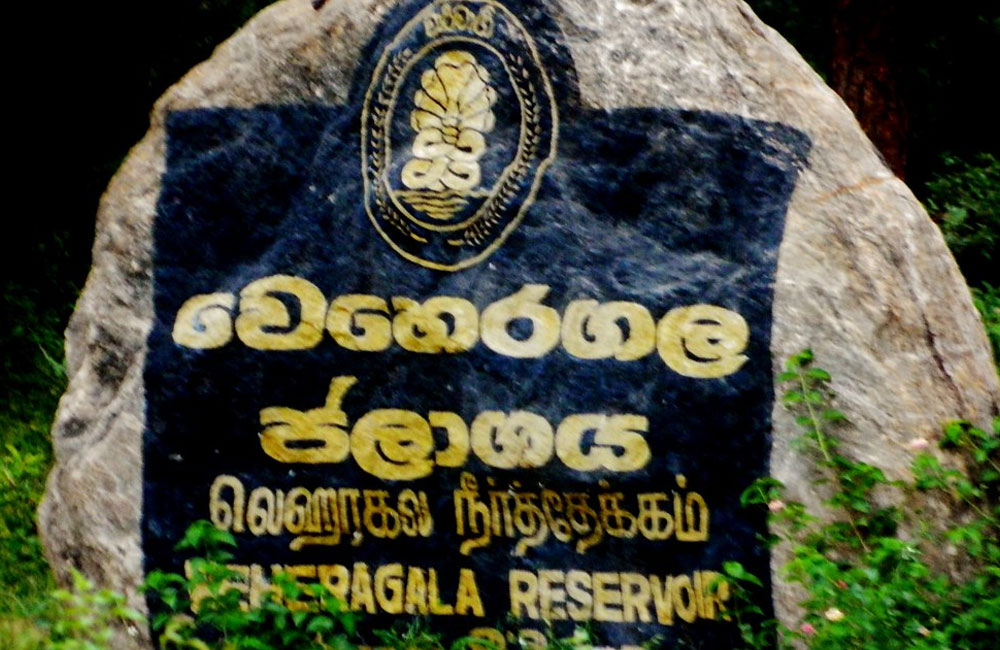
Two Sacks of Weapons Recovered from Weheragala Reservoir
A stock of military equipment has been discovered in the Weheragala Reservoir in Kataragama.
The recovery includes 74 T-56 magazines, 35 LMG drums, 5 MPMG drum boxes, along with several unidentified magazines. In addition, two boxes suspected to contain explosives and two sacks believed to hold weapons were also found at the site.
The discovery was made following an intelligence tip received by the Army. The stockpile had surfaced as a result of receding water levels in the reservoir. Since the location falls under the Gonaganara Police Division, the items were handed over to the Gonaganara Police Station for further investigation.

Mother Remanded with 2½-Month-Old Baby for Stealing Two Chocolates
A mother and her 2½-month-old baby have been remanded in custody for allegedly stealing two chocolates.
Yesterday (30), the 26-year-old woman and her infant were taken into custody by the Gandara Police and produced before the Matara Chief Magistrate’s Court.
Lawyer Sameera Meekandawatta argued extensively on behalf of the mother, stating that remanding her in custody would cause severe hardship to the young child and requested bail. However, Chief Magistrate Chathura Dissanayake denied bail, and ordered the mother to be remanded.
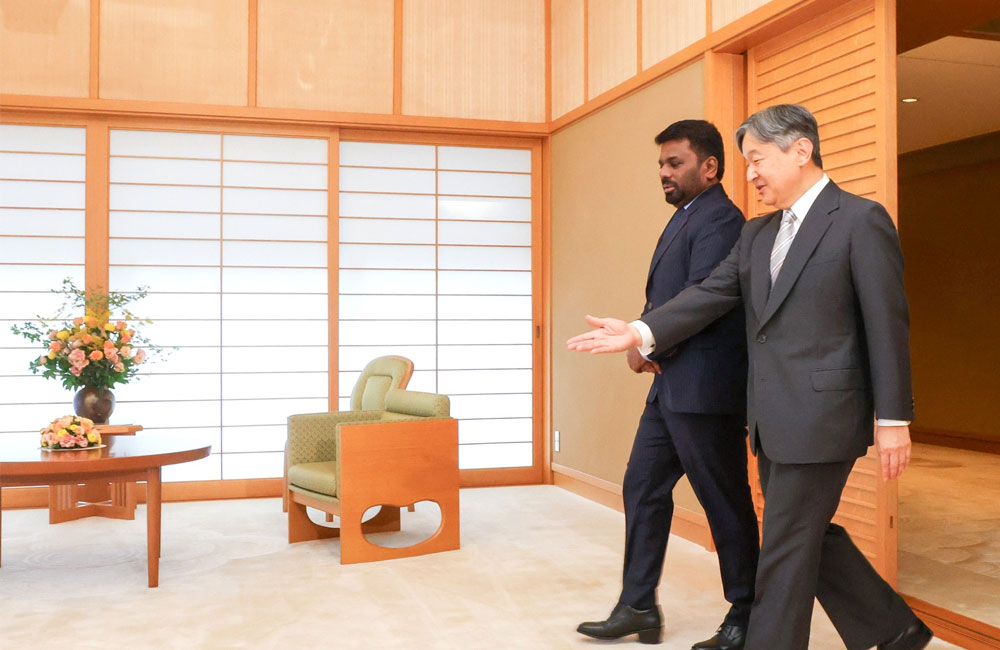
President meets Emperor Naruhito in Japan
At the invitation of the Japanese Government, President Anura Kumara Dissanayake met with Emperor Naruhito of Japan during his official visit to the country.
The meeting took place yesterday (30) at the Imperial Palace in Tokyo.
President Dissanayake was warmly received by Emperor Naruhito at the Imperial Residence, following which they engaged in a cordial discussion.
Minister of Foreign Affairs, Foreign Employment and Tourism, Wijitha Herath, was also present at the occasion.
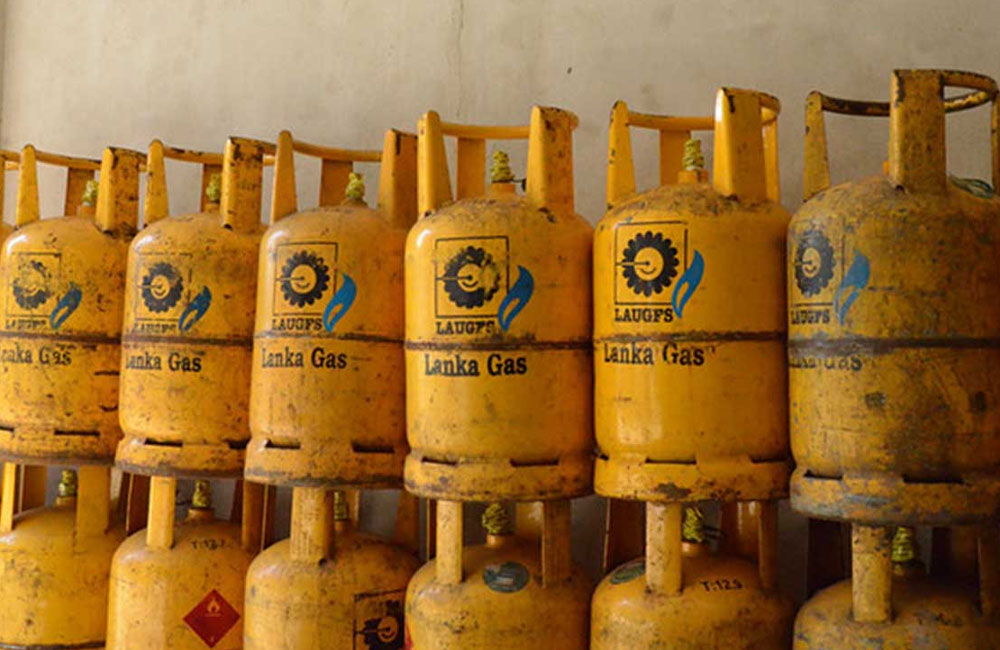
No Change in Laughs gas Prices
The relevant authority has issued a notice regarding the price of Laughs gas following the monthly price adjustment.
Accordingly, there will be no change in the price of Laughs gas for the month of October.
Under this pricing, a 12.5 kg Laughs gas cylinder will cost Rs. 4,100, while a 5 kg Laughs gas cylinder will be priced at Rs. 1,645.
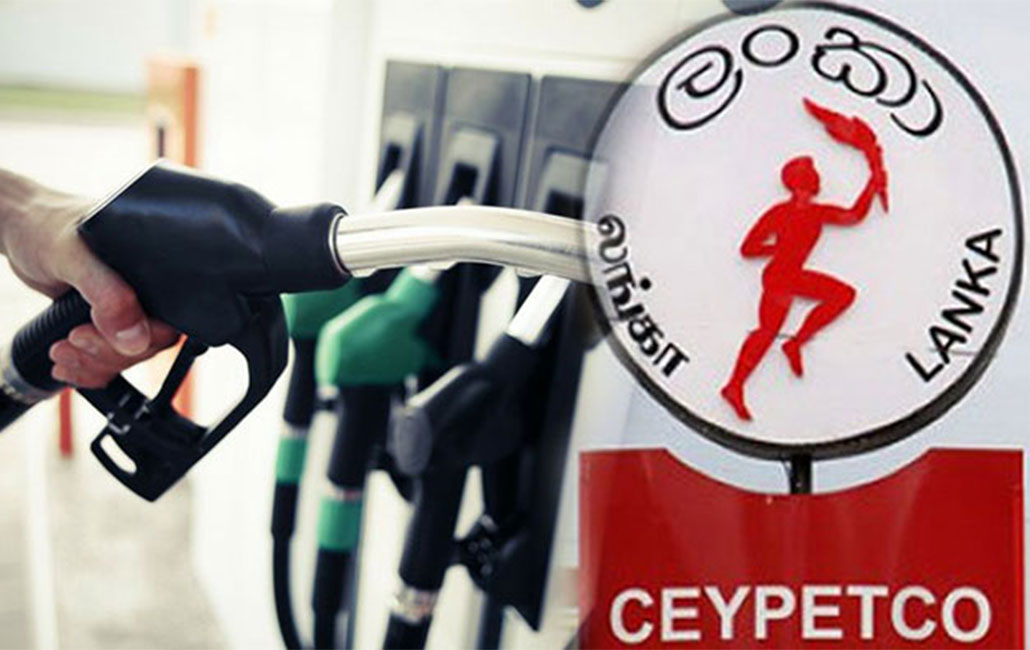
Fuel price reduced
The Ceylon Petroleum Corporation (Ceypetco) has announced a revision of fuel prices effective from midnight today (30).
According to the announcement, the price of Auto Diesel will be reduced by Rs. 6 to Rs. 277 per litre, and Petrol 95 Octane will be reduced by Rs. 6 to Rs. 335 per litre.
Kerosene will be reduced by Rs. 5 to Rs. 180 per litre.
Meanwhile, there will be no change in the prices of Petrol 92 Octane and Super Diesel.
The revised rates are as follows:
Auto Diesel – Rs. 277 (reduced by Rs. 6) Petrol 95 Octane – Rs. 335 (reduced by Rs. 6) Kerosene – Rs. 180 (reduced by Rs. 5)
Super Diesel – (not revised) Petrol 92 Octane – (not revised)
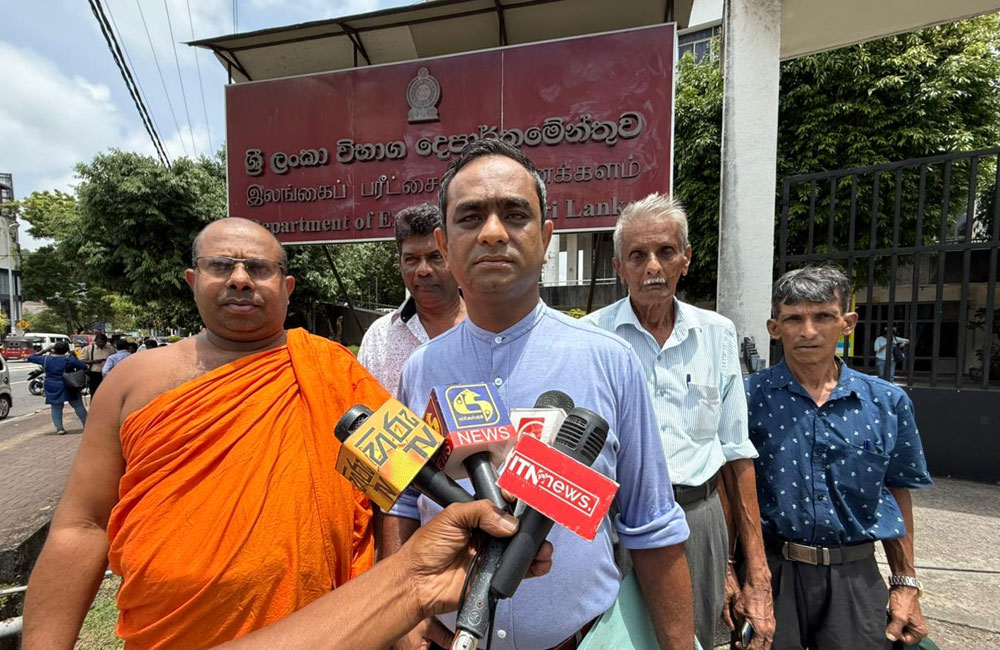
Is District Rank 03 story True? – NPF Questions Minister Wasantha’s Educational Qualifications
The National People’s Front (NPF) has submitted a written request today to the Information Officer of the Department of Examinations, seeking clarification regarding the accuracy of the educational qualifications of Minister of Trade, Wasantha Samarasinghe.
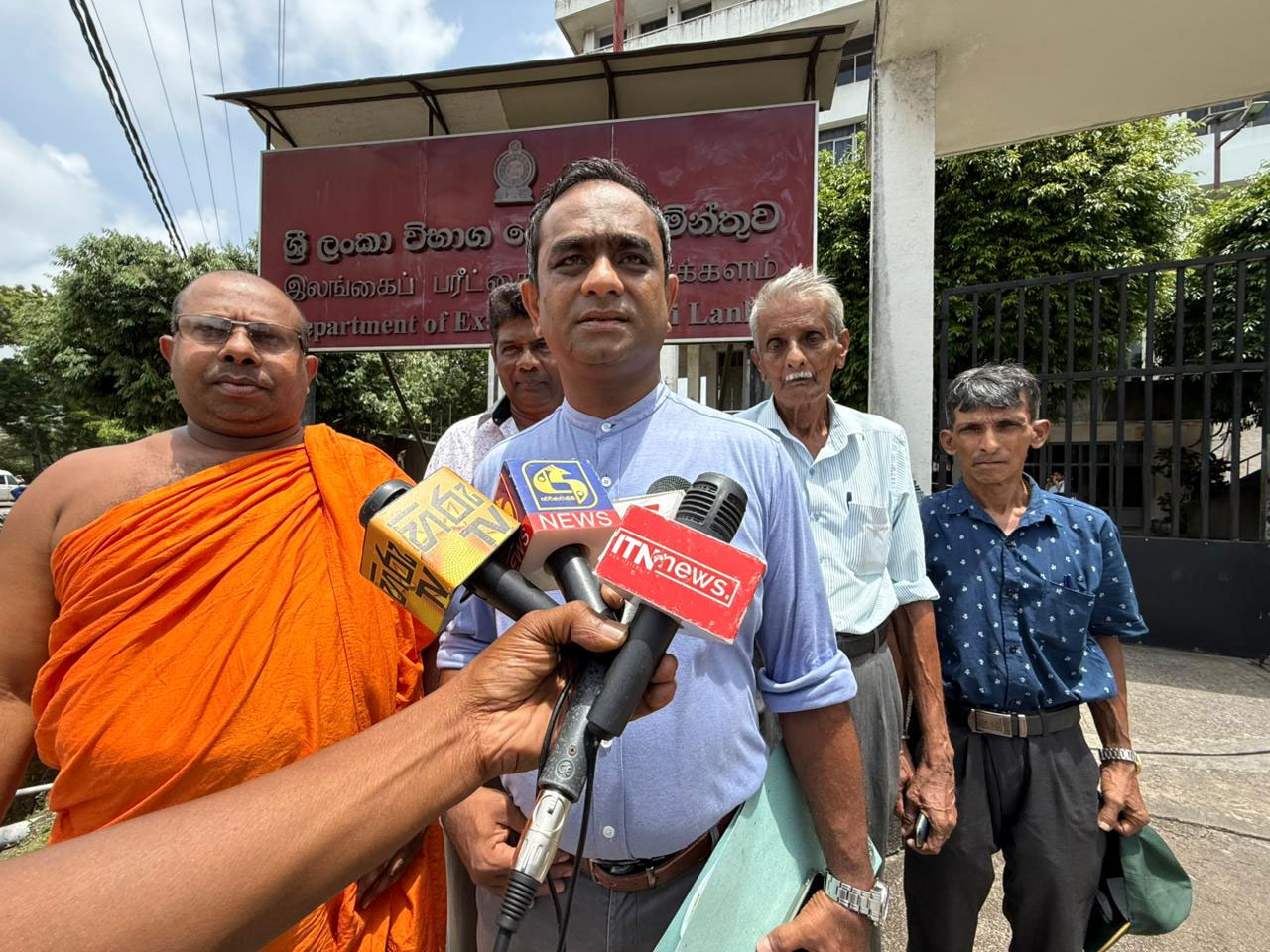
The request was made under the provisions of the Right to Information Act, No. 12 of 2016.
Present at the occasion were NPF Chief Advisor Ven. Wellampitiya Sumanadhamma Thero, Deputy Leader Upatissa Kumarathunga, Financial Secretary Dinushka Gunasekara, Kolonnawa Chief Organizer Ajith Kumara, and Kolonnawa Organizer Jayasinghe.
Deputy Leader Upatissa Kumarathunga, addressing the media after handing over the letter, stated that Minister Samarasinghe has repeatedly claimed in Parliament, on television programs, and on political platforms that he passed the G.C.E. Advanced Level examination in 1995 from the Anuradhapura District in the Commerce stream, securing District Rank 03, and was subsequently selected to the University of Kelaniya to study for a Management degree.
However, according to the NPF, during the years 1995–1998, students who achieved District Ranks 01 to 05 in Anuradhapura and Polonnaruwa districts in the Commerce stream were admitted to the Management Faculty of the University of Sri Jayewardenepura. Therefore, the NPF has formally requested the Examinations Commissioner to confirm whether Minister Samarasinghe sat for the A/L examination in the Commerce stream from the Anuradhapura District, and if so, whether he in fact secured District Rank 03.
Allegation of Political Placement
The NPF further questioned whether the Minister was directed to the University of Kelaniya not based on merit but for political purposes, specifically to engage in student politics on behalf of the JVP. They alleged that his placement was strategically arranged by the JVP to enable him to play a leading role in the Inter-University Students’ Federation.
According to the NPF, this raises doubts as to whether his entry into Kelaniya University was primarily for political activism rather than academic pursuit.
Call for Transparency
The NPF challenged Minister Samarasinghe to publicly produce his Advanced Level results sheet as proof of his claims. They stated that if his District Rank was indeed 03, he should have been admitted to the University of Sri Jayewardenepura, not Kelaniya.
The NPF further alleged that Minister Samarasinghe’s political involvement at Kelaniya University contributed to student unrest, loss of educational rights, classroom bans, and in some cases, students being deprived of their degrees.
Concluding their remarks, the NPF urged the Examinations Commissioner to verify and communicate the truth regarding the Minister’s A/L results without delay. Until then, they said, they would closely monitor the matter.
They also appealed to university students, parents, and the general public to be cautious of the “double standards” of the JVP and its allies, stressing that the NPF would not allow such “falsehoods” to continue misleading the country.
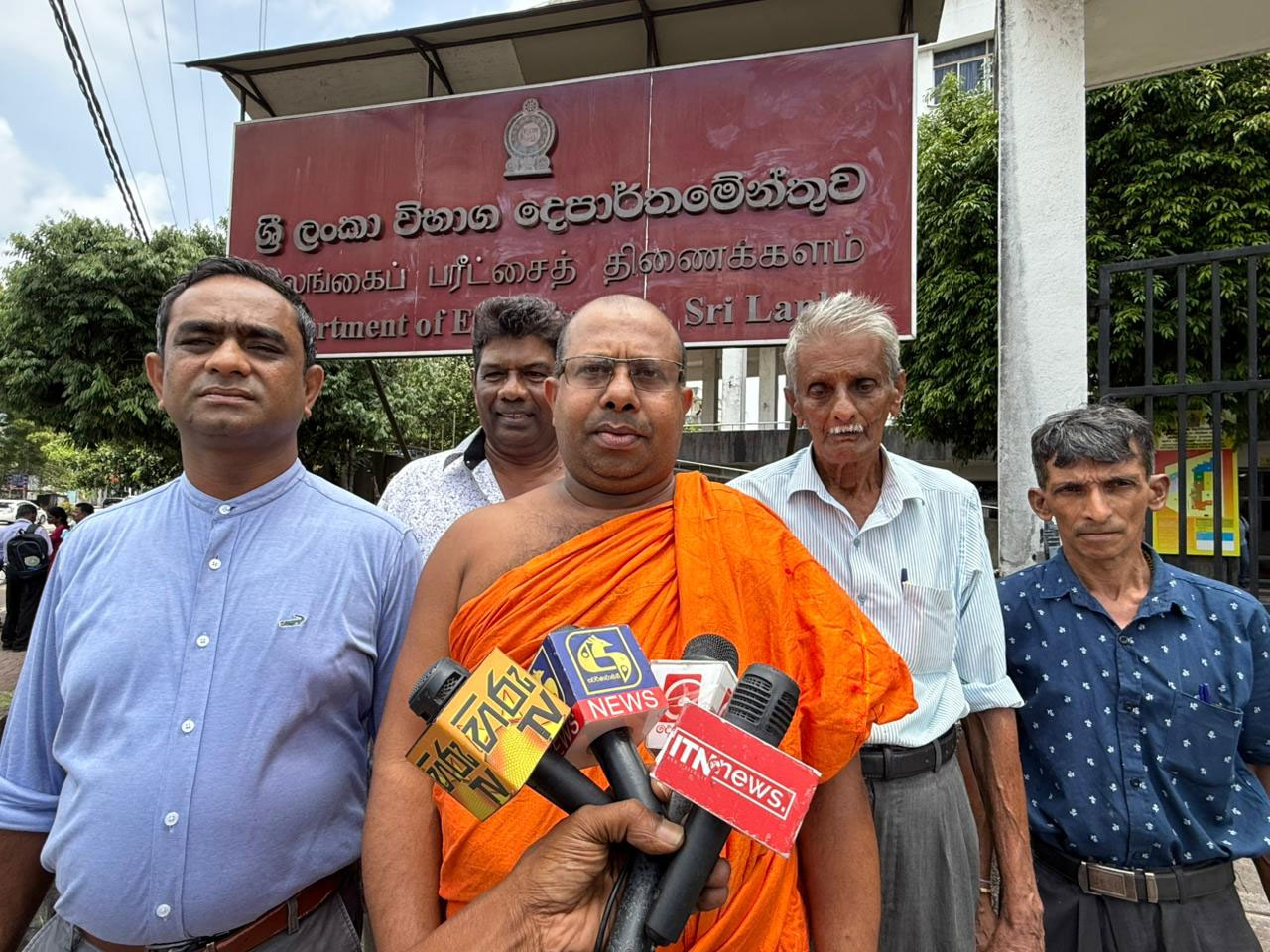
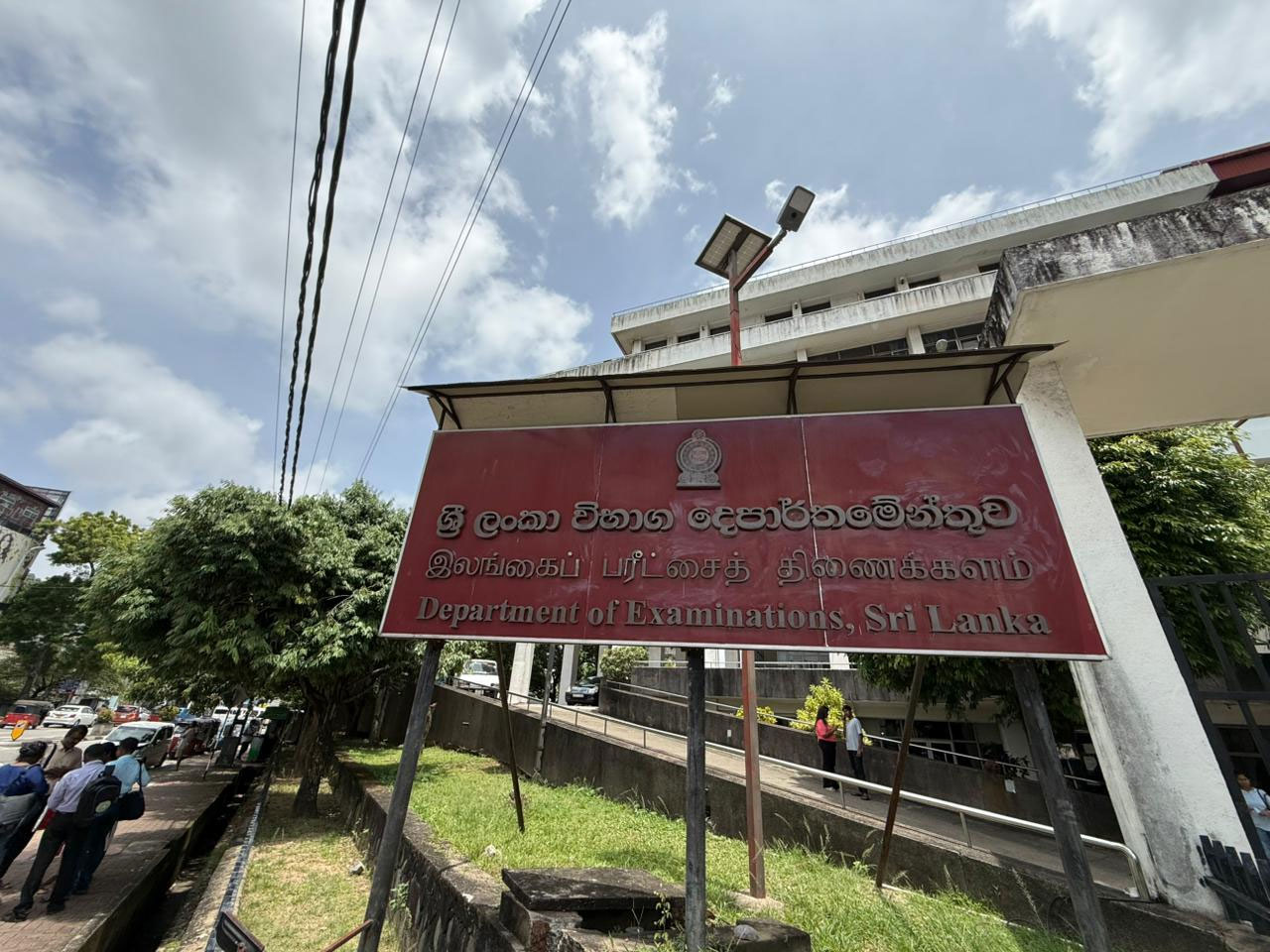
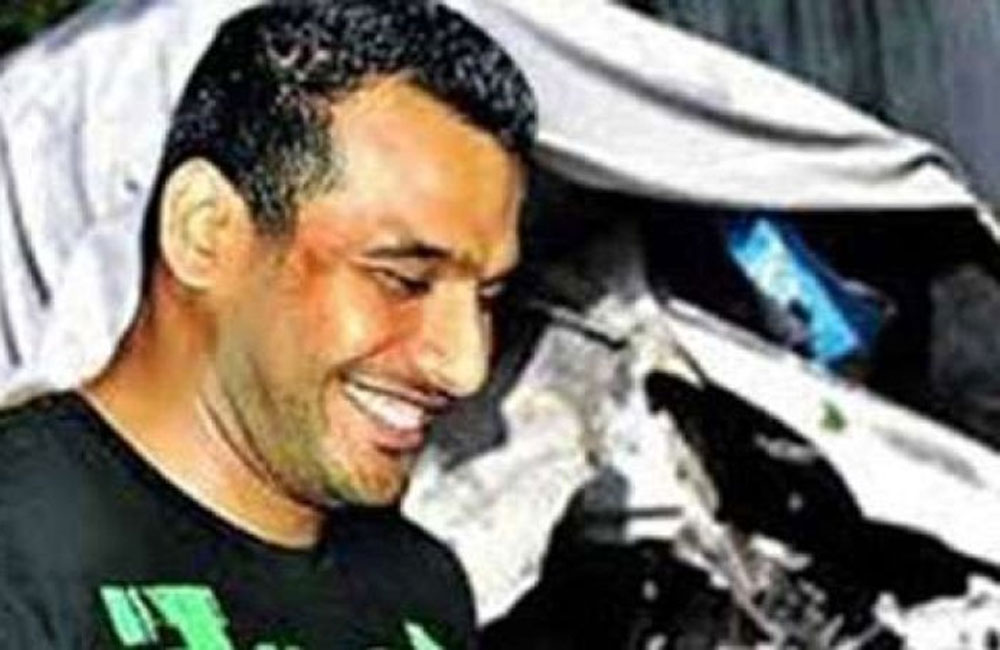
13 Years Later: CCTV Suspect in Thajudeen Case Identified as Slain Gang Member
A major breakthrough has emerged in the long-running investigation into the death of national rugby player Wasim Thajudeen, who died under suspicious circumstances on May 17, 2012, near Shalika Grounds in Narahenpita.
Initially classified as a car accident, the case was investigated by the Narahenpita Police and the Borella Crimes Investigation Division. Based on their findings, the death was deemed accidental, and the case was closed.
However, in 2015, then-DIG of the Colombo Range, Gamini Mathurata, submitted a report to then-IGP N.K. Illangakoon, prompting the transfer of the case to the Criminal Investigations Department (CID). A comprehensive investigation followed, revealing that the initial post-mortem had been improperly conducted, raising serious doubts about the cause of death.
The CID obtained court approval to exhume Thajudeen’s body. A second post-mortem, led by then-Colombo Chief Judicial Medical Officer Dr. Ajith Tennakoon, revealed missing bones in the chest and neck areas. The findings confirmed that Thajudeen’s death was not accidental, but a homicide.
Treating the case as murder, CID detectives retraced Thajudeen’s final movements. CCTV footage showed him parking near a supermarket in Havelock Town to buy water. Upon leaving, another vehicle was seen tailing his car. The CID released footage of an unidentified individual near the second vehicle, but no identification was made at the time.
A new lead surfaced following the arrest of several wanted Sri Lankan criminals in Indonesia, including Kehelbaddara Padme, Commando Salinda, Panadura Nilanga, Backhoe Saman, and Thambili Lahiru. Among them, Backhoe Saman—a known member of an organized crime syndicate—was linked to the assassination of Aruna Shantha, alias Middeniye Kajja, who was gunned down in early 2025.
CID investigators received a voluntary statement from Kajja’s wife, who confirmed her husband had received threats and had publicly spoken about the Thajudeen case in a 2023 YouTube interview.
When shown the CCTV image of the individual near the second vehicle in Thajudeen case, she identified the person as her late husband, citing specific traits such as his posture—placing hands on hips due to chronic hip pain.
Her statement strongly suggests that the previously unidentified individual in the footage is indeed Aruna Shantha, alias Kajja.
This identification marks a significant development in a case that has spanned over a decade, marred by delays and controversy.The CID continues to pursue leads and is actively investigating the murder of Wasim Thajudeen.
newsfirst.lk
Page 78 of 656